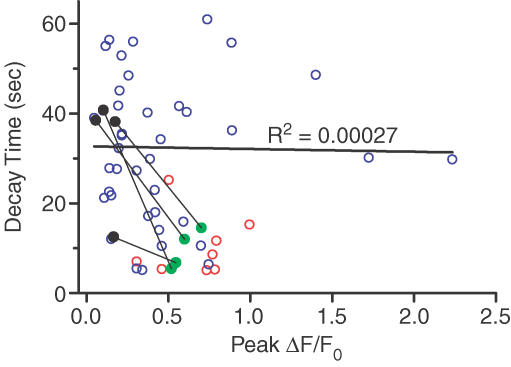Figure 4. Ca2+ transient decay times but not peak Ca2+ transient amplitudes are dependent on temperature and glycolysis.
Peak amplitudes and 95%–10% decay times of Ca2+ transients were plotted for individual CNTs excited by electrical field stimulation (50 stimuli at 10 Hz). Each point represents data from an individual CNT excited either at room temperature (22–24°C, blue) or at physiological temperature (35–37°C, red and green). There was no correlation between peak amplitudes and 95%–10% decay times (R2= 0.00027). Average 95%–10% decay times were significantly different between experiments performed at 22–24°C and 35–37°C (P < 0.001, n = 40 and 12, for 22–24°C and 35–37°C, respectively). For experiments with iodoacetate, the temperature was 36°C; pre- and post-drug data are shown by green and black points, respectively, and pre- and post-drug data from the same CNT are connected by a thin line. Solid black line is the result of linear regression performed on pre-drug data points acquired at room temperature.

